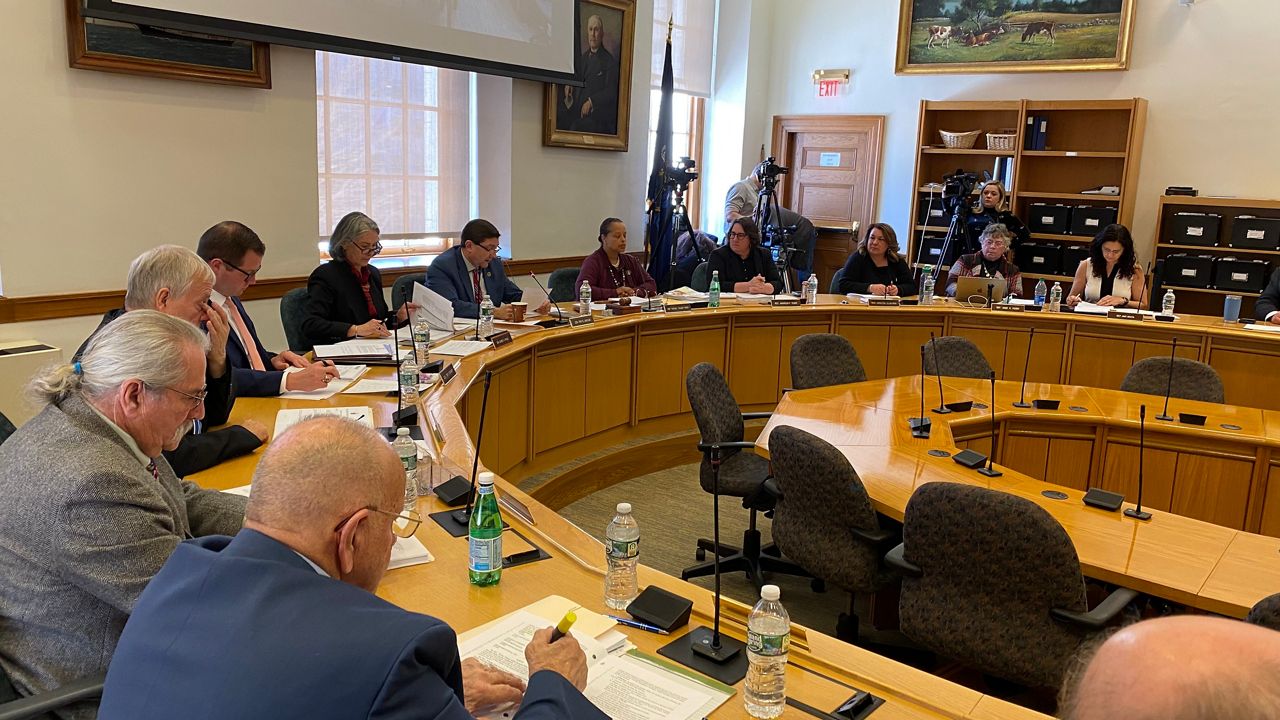A legislative committee gave unanimous approval Wednesday for a bill that would send $450 checks to most Mainers to relieve high heating costs.
The 13-0 recommendation to the full House and Senate sets the stage for a vote before the full Legislature Jan. 4..
“I believe we have a product on the 4th that will pass,” Senate Minority Leader Trey Stewart (R-Presque Isle) said.
The committee spent seven hours considering the measure, including hearing from dozens of Mainers emphasizing the need for help paying heating bills and money to help with temporary housing.
Rep. Anne Perry (D-Calais) said the money is band-aid to help people get through a time of high heating oil, kerosene and electricity prices.
“I can say if this bill passes, we now have a charge to make sure we can prevent a crisis like this again,” she said.
Moving forward, lawmakers will look to the new two-year budget proposal from Gov. Janet Mills to address serious issues like funding for nursing homes, a waiting list for services for those with developmental disabilities and home and community-based services, said House Minority Leader Billy Bob Faulkingham (R-Winter Harbor).
“We’ve come together to compromise for the good of the Maine people,” Faulkingham said.
The $474 million bill proposes to send $450 checks to single tax filers making $100,000 or less or $200,000 per couple.
In addition, it includes $40 million in supplemental funding for the low-income heating assistance program, $10 million for emergency fuel assistance and $21 million to support emergency housing and shelters.
Earlier in the day, Maine Public Advocate William Harwood told lawmakers that electricity generation and distribution rates will rise in the coming year.
“All of this will add to this winter’s misery as Maine consumers, especially those low-income consumers, face energy prices that are extraordinarily high,” he said. “As quickly as possible, we must lessen the financial burden on Maine ratepayers trying to stay warm this winter.”
Harwood said one year ago, it cost 6 cents per kilowatt hour for residential ratepayers, but now that same kilowatt hour costs 18 cents.
“I can’t think of another commodity, whether it be milk, bread, gasoline, taxes or anything that has gone up three times in such a short period of time,” he told members of a temporary Appropriations Committee.
Harwood was the first to speak at a hearing following two hours of testimony by state officials who sought to answer questions from legislators, particularly Republicans, who questioned whether the state should spend surplus and other federal funds on the proposal.
Mills worked with legislative leaders earlier this month to seek a compromise on a plan that she hoped would pass on Dec. 7, which would have meant checks would begin arriving in mailboxes by mid-January.
But the plan stalled in the Senate, where Republicans voted it down because it had not had a public hearing.
Department of Administrative and Financial Services Commissioner Kirsten Figueroa told lawmakers that the six initiatives in the bill are paid for with surplus funds, general funds and federal money.
“This bill takes these one-time funding sources to address a hopefully one-time emergency issue to make sure Maine people have the financial resources to keep them safe, secure, warm and housed this winter amid near-record high energy prices,” she said.
Earlier in the day, the governor’s policy office released updated figures that show the average cost of heating oil in Maine is $4.53 per gallon, up 44% from one year ago.
The average cost of a gallon of kerosene is $6.51, up 75% from one year ago.
Put another way, the average cost to fill a 275-gallon tank of oil is now $1,245, up from $863 a year ago. For kerosene, it’s now $1,790, compared to $1,025 last year.
Harwood reminded lawmakers that Central Maine Power and Versant have proposed distribution rate increases of over 30%, he said.
“All of this will add to this winter’s misery as Maine consumers, especially those low-income consumers, face energy prices that are extraordinarily high,” he said. “As quickly as possible, we must lessen the financial burden on Maine ratepayers trying to stay warm this winter.”



